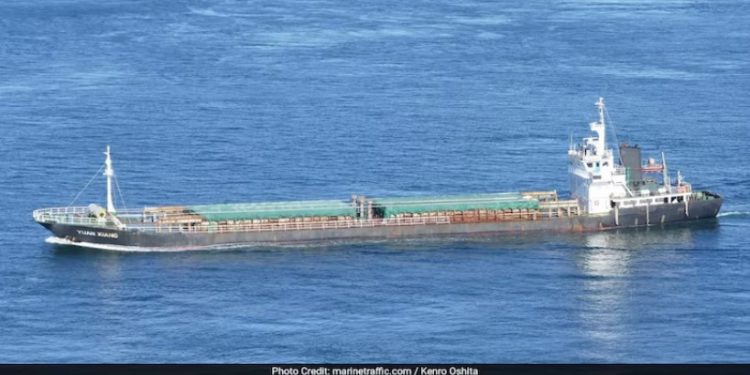In what can be seen as an ominous development for India, a cargo ship from Pakistan recently docked at the Chittagong port in Bangladesh for the first time since the creation of the country in 1971. The Panama-flagged ship with a Chinese name — Yuan Xiang Fa Zhan – arrived from Karachi. According to Chittagong port authorities, the vessel arrived with cargo from Pakistan and the United Arab Emirates, which included essential raw materials for Bangladesh’s flourishing garment industry as well as staple food items. This marks the beginning of maritime ties between India’s western and eastern neighbours.
The Pakistan High Commission in Dhaka terming this development as “a major step in bilateral trade,” indicates a notable change in the historically frosty relationship between the two nations which were once a single country.
The 1971 war led Bangladesh to align more closely with India. This was a consequence of the brutal atrocities committed by the Pakistani army on the people of Bangladesh (then East Pakistan). Ties have been especially strained during the tenure of Sheikh Hasina, who was the longest-serving Prime Minister in Bangladesh’s history, as her party, the Awami League had long been pursuing justice for the war’s atrocities.
However, things changed dramatically in August this year after a student-led uprising resulted in the ousting of Sheikh Hasina, who fled the country and took refuge in India. The interim government led by Nobel laureate Muhammad Yunus from the very outset has been cosying to Pakistan with the intention of rebuilding ties with that country. While meeting Pakistan Prime Minister Shehbaz Sharif during the United Nations General Assembly at New York in September, Yunus had stressed the importance of revitalising bilateral cooperation between the two countries. On top of this, the Islamist outfit, Jamaat-e-Islami, which has always been opposed to the idea of Bangladesh and had in fact allied with the Pakistani army during the war, has a significant presence in the interim government.
In September, Bangladesh relaxed its import restrictions on Pakistani products. Previously, Pakistani goods needed to be transferred to feeder vessels—especially in Sri Lanka, Malaysia, or Singapore—before making their way to Bangladesh.
However, with Pakistani vessels now able to dock directly in Chittagong, the possibility of contraband being transported to Bangladesh and subsequently reaching insurgent groups in India’s northeast cannot be dismissed. All this holds special importance now because Manipur and neighbouring states of North East India are passing through a very difficult and violent period. It is pertinent to note here that in 2004, about 1,500 Chinese munitions, valued between $4.5 and $7 million and meant for Assam’s insurgent group ULFA, arrived in Chittagong via trawlers along the sea route and were reportedly linked to Pakistan’s ISI. Fortunately for the Indian security establishment, the consignment was intercepted by the authorities at Chittagong port itself. To this date, it remains South Asia’s biggest arms haul.
Some observers are rightly wary that the establishment of direct maritime connections between Pakistan and Bangladesh could potentially lead to unrest in India’s North Eastern states, four of which — Assam, Mizoram, Meghalaya and Tripura — share their borders with Bangladesh. Recent developments indicate some sort of restiveness returning to the North Eastern states, especially in Mizoram and Nagaland, while violent ethnic strife has ripped apart Manipur for the past one and a half years. And, with the situation in Myanmar remaining fragile, India’s security apparatus needs to exercise extreme caution.
A Pakistan-Bangladesh nexus forming at a time when India has been constantly losing its neighbours to China could turn into a nightmare for this country. But Indian leadership does not seem concerned with these developments. The future may bring about drastic changes in that part of the country.






































